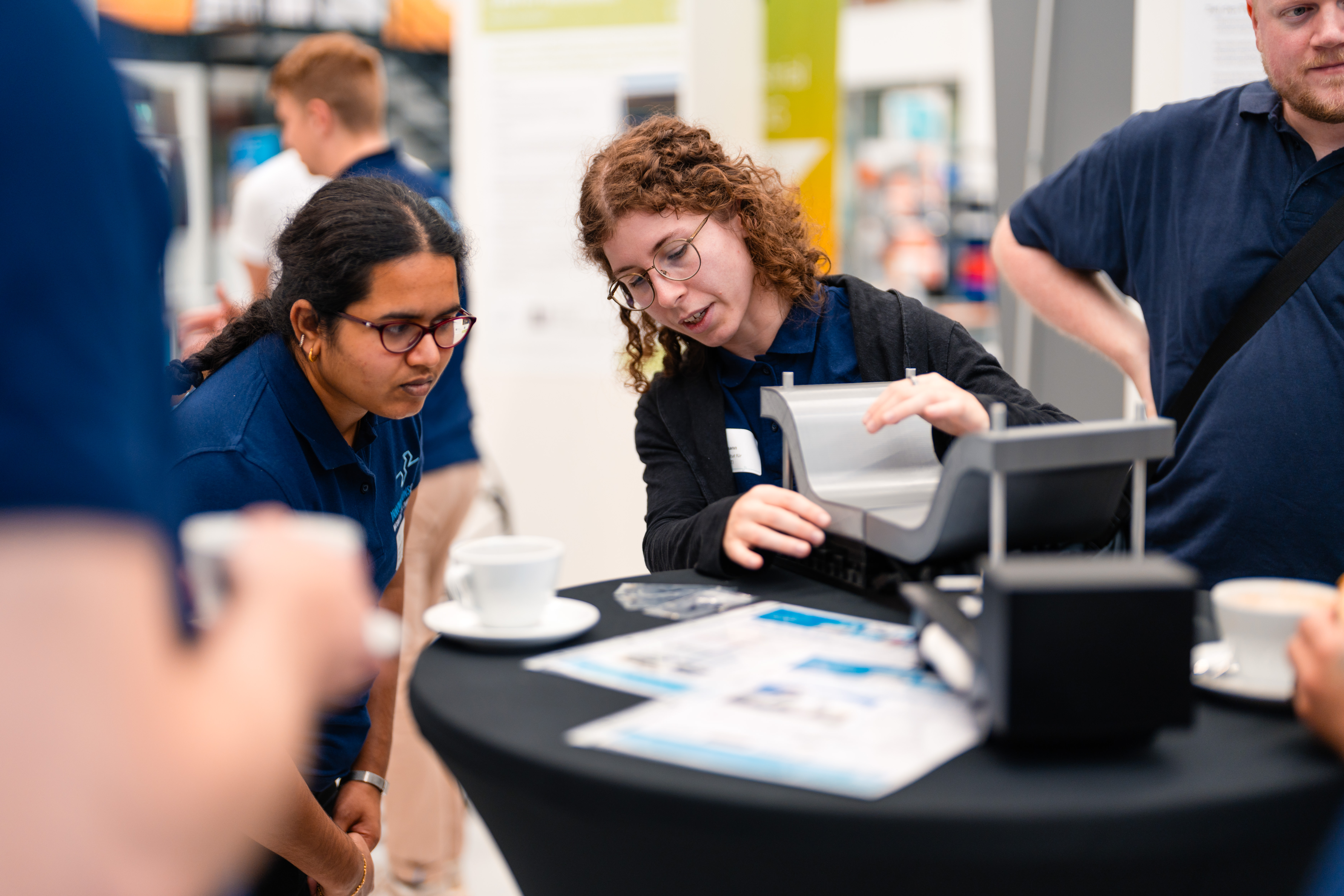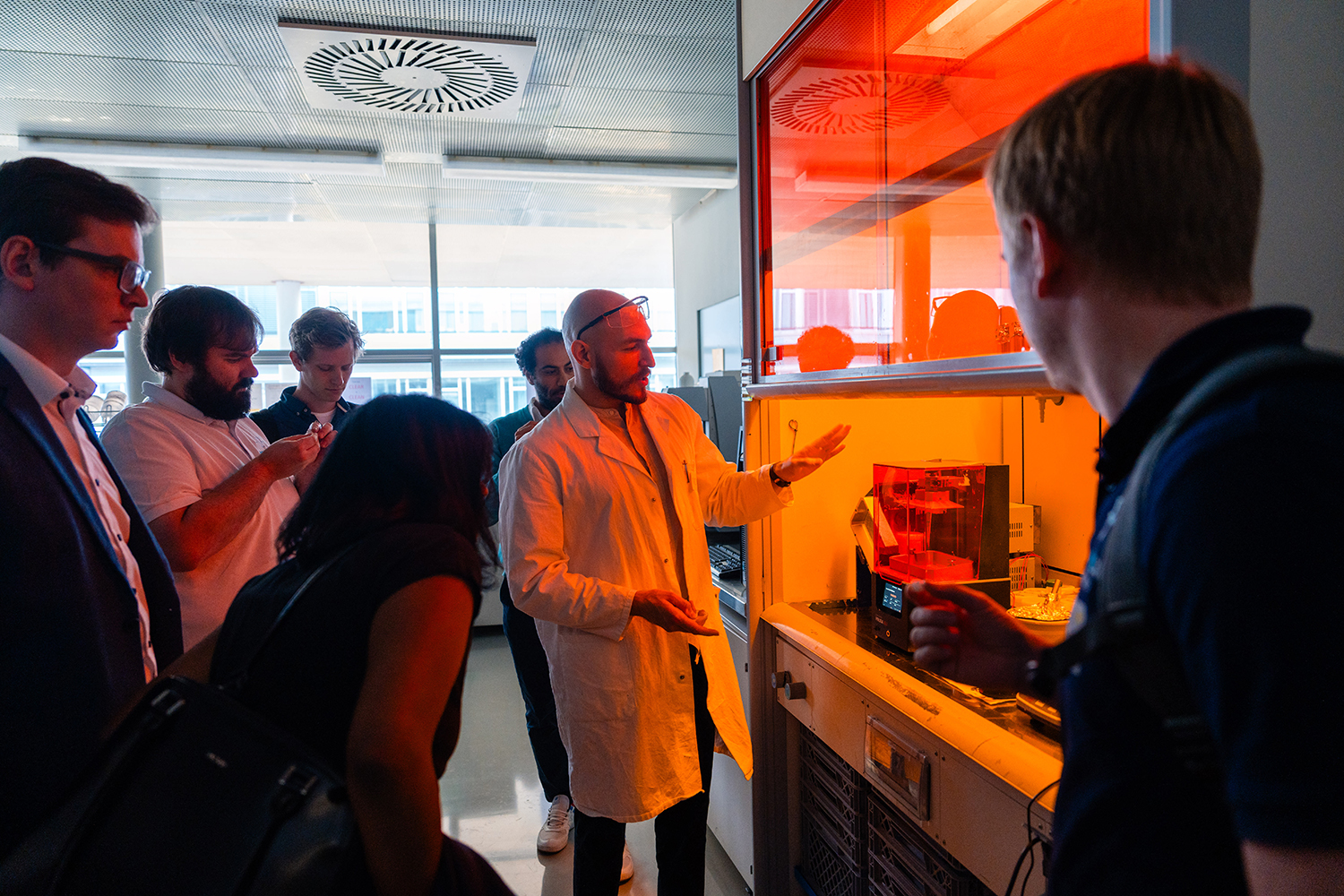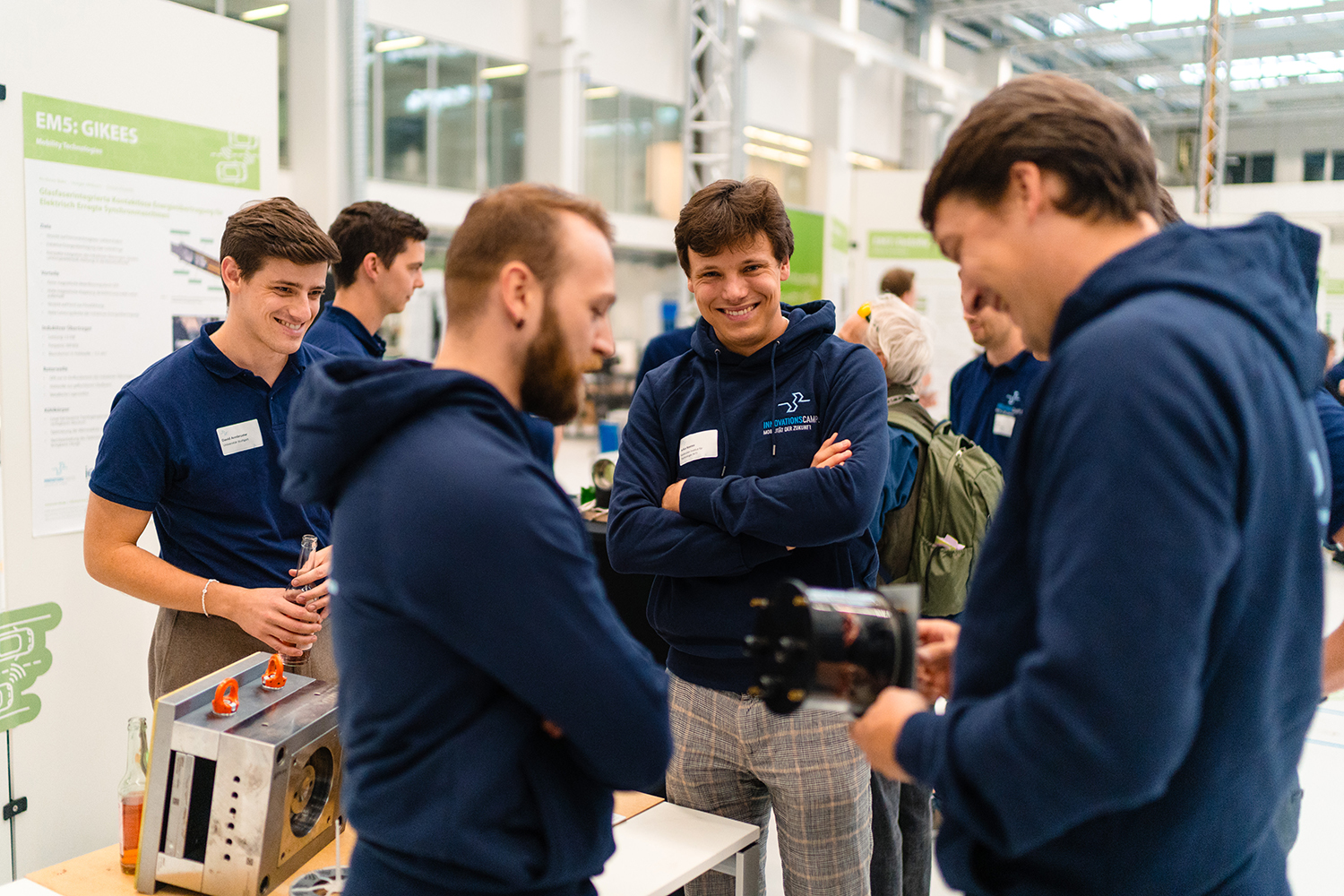One moment is symbolic for what characterizes the InnovationCampus Mobility of the Future. "We can use laser deposition welding to create three-dimensional components that are high-quality at first shot," says Dr. Marcel Schäfer, CTO of laser technology specialist Precitec, during his presentation on the "Easy Metal Printer" project at the ICM Day. Not Precitec, but us. This we is the ICM. In this specific case, the Institute for Blasting Tools, the Institute for Control Engineering of Machine Tools and Production Facilities at the University of Stuttgart and Precitec, which implemented the transfer project. Overall, We stands for the close cooperation between industry and research as a basis for the success of Baden-Württemberg as a business location. On ICM Day, the guests were able to see for themselves that the InnovationCampus has now become an important interface in this respect. As part of the first InnovationChallenge for "Easy Metal Printer", the ICM brought together the right experts from research with a company that can validate the results in an application-oriented manner and transfer them into practice.

Transfer makes successful and connects
Success unites. The Innovation Campus Mobility of the Future (ICM) even brings together institutes from once competing universities. The impact of cutting-edge research with successful transfer to industry goes far beyond the development of competitive solutions in the field of mobility and production technologies. The more than 300 attendees from research, industry and politics were able to see this for themselves on "ICM Day: Future Mobility Open Labs" on October 5 at the ARENA2036 research factory in Stuttgart.

Through its funding and transfer measures, the InnovationCampus sustainably connects university institutes with each other and networks them with industry. "The ICM is strongly embedded in the automotive industry strategy dialog in Baden-Württemberg and supports the transformation in the sector. Our research work is important for the automotive industry and production throughout the state," emphasized Professor Thomas Hirth, Vice President Transfer and International Affairs at KIT and member of the ICM Research Board. After participants visited various ICM partner institutes on laboratory tours in the morning, the ICM and the partner institutes presented their projects, measures, junior research groups and professorships in the afternoon. "We get incredibly interesting insights into many projects here. The variety of different subject areas and technologies is very challenging," said Dr. Maren Stahlberger from the Institute of Microstructure Technology at KIT. She presented the ICM project "BioHealing" for her institute.

However, posters and exhibits were not just presentations of results. They were points of contact that brought people from different areas together. Developers from industry discussed with researchers. Laser technicians with aircraft manufacturers. Business promoters with institute directors or research field coordinators. Of course, it was not only the successes of the past that were discussed. One or two discussions also led directly to approaches for new research work or possible funding formats. The event thus makes its contribution to networking between universities, companies and politicians. "Industry is currently making too little use of research capacities and research infrastructure. That's why organizations like the ICM are important, trying to bring business and science together so that both sides benefit," said Dr. Walter Naumann from ETO GRUPPE TECHNOLOGIES GmbH. The visit to the ICM Day was his first direct contact with the Innovation Campus. He was not only impressed by the research results of the various projects in the field of software-defined mobility, but also by the cohesion and willingness to identify within the campus. The researchers usually knew what other teams were working on and sometimes explained the neighboring project at the same time.

The ICM connects. The research initiative has long since developed into a central point of contact for more than 50 research institutes and partners from industry in Baden-Württemberg.